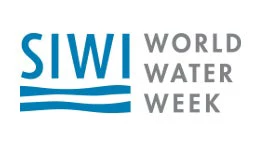The World Bank at World Water Week 2015
Ours is a world of ‘thirsty agriculture’ and ‘thirsty energy’ competing with the needs of ‘thirsty cities.’ At the same time, climate change may potentially worsen the situation by increasing water stress as well as extreme events, reminding us that the water and climate nexus can no longer be a side event at global climate talks. All of this is happening in a context where the important agenda of access to services – despite the impressive gains over the past several decades – remains an unfinished agenda, requiring an urgent push if we are to fulfill the promise of universal access.
Stockholm’s focus on ‘water for development’ is therefore right. The time has indeed come to shift our thinking from looking at water through its traditional components – water supply, sanitation, irrigation, or water resources – to placing water at the center of the development dialogue. This shift signals that we have now entered into the world of water security where service delivery and management of water resources can no longer be addressed separately and water becomes intricately linked to development more broadly.
Not surprisingly, according to the World Economic Forum, water security has emerged as one of the major challenges defining our times and potentially the number one global risk in terms of development impact. Indeed, in a context where we need to focus on water for development, the world will not be able to meet the sustainable development challenges of the 21st century without ensuring a water secure world for all.
At this year’s World Water Week conference in Stockholm, Sweden, the World Bank Group, is engaged in a range of technical sessions and workshops aimed at looking at tackling key policy challenges confronting the water sector. This booklet is a summary of some of the issues we hope to discuss in Stockholm in the broader setting of ‘water for development.’ Together with our partners, our area of focus this year includes five main topics:
- Ensuring access to sustainable services for everyone, especially the poor
- Building resilient cities, which can handle growing water stress, rapid urbanization, and climate change
- Managing transboundary cooperation on information, infrastructure, and institutions
- Ensuring gender equality in access to water, which improves sustainability, health, and education
- Attracting commercial Financing into the Water and Sanitation Sector
I invite you to visit our event page and follow us on The Water Blog, where some of our water experts will share insight on these themes throughout the week. You can also follow us on Twitter @WorldBankWater and of course with the World Water Week hashtag #wwweek.
Water in all its complex dimensions remains a high priority for the World Bank in its mission to end extreme poverty by 2030 and promote shared prosperity. As the world’s largest multilateral source of financing for water in developing countries, and with the support of our development partners, our commitment to a water secure world has been a constant. But, in the context of ‘water for development’ we recognize that we all need to do much more. We hope that Stockholm will be a clarion call for all of us to place water on the global development agenda.
We look forward to engaging with you at Stockholm World Water Week.
Related events:
High Level Panel: Raising the Profile of Water Towards COP21
Wednesday, August 26, 14:00-15:30 (NL Auditorium / Aulan)
Livestream available
Related Water Blogs:
Moving toward universal, quality water and sanitation services
How can we ensure that we build water and climate resilient cities?


Join the Conversation